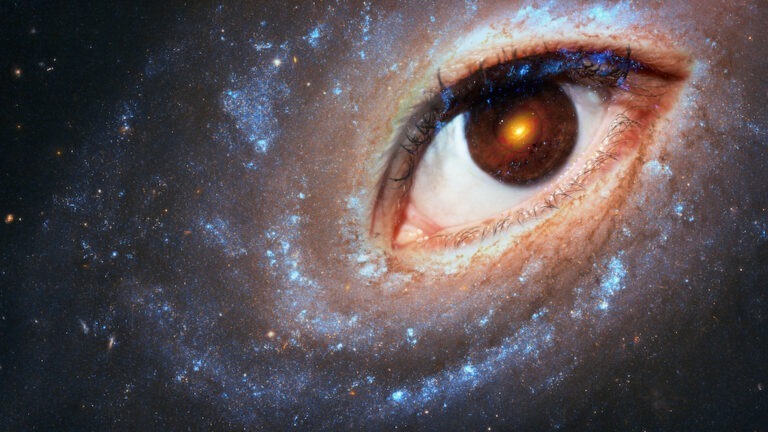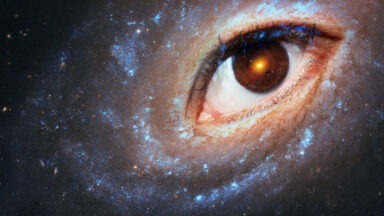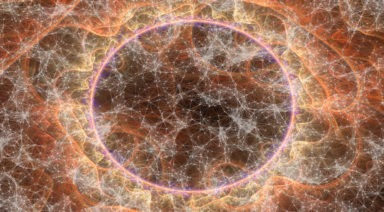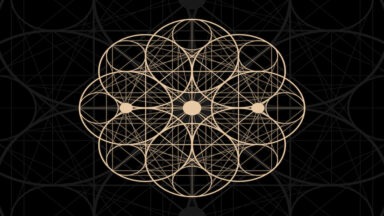Did You Psychically Inherit Society’s Learned Behavior?

The scientific community is often very rigid in its process and not always open to radical ideas. Rightfully so, that is the nature of science – strict scrutiny and skepticism. But what if it is limiting itself in this approach, in the sense that it has taken on some of the same parochial propensities of religion? Science is supposedly the antithesis of religion and meant to question everything with the goal of new discovery. While it is necessary to maintain skepticism to prevent charlatans from diluting the scientific process, there should be a certain level of tolerance for new ideas.
Rupert Sheldrake is one of those scientists that his community has largely shunned as a heretic. Despite studying at Harvard and graduating from Cambridge with a Ph.D. in biochemistry, the scientific community has dismissed his radical ideas as nonsensical and blasphemous. Sheldrake admittedly started his career in science as an atheist, but eventually had an epiphany about our consciousness that changed his outlook.
Sheldrake has proposed an idea he calls, morphic resonance. Essentially, the idea is that there is a collective consciousness within species that can impact disparate groups of organisms without them having to come into contact with each other. A sort of telepathic connectedness that can influence behavior and can be passed down through immediate generations.
Lamarckian Inheritance
The idea of learned behavior being inherited, or Lamarckian Inheritance, has been shown to be a pretty promising theory, if not proven. Although unsurprisingly, the scientific community doesn’t all agree on this. Regardless, this idea is fundamental in Sheldrake’s theory.
The evidence comes from a study in the 1920s, where rats were tested by being placed in a water maze they had to escape from. The rats were electrically shocked when they chose one of two exits deemed to be the wrong exit. They eventually learned which exit was the correct one over a trial of several hundred tests. As they got better, their offspring were tested, and immediately showed quicker rates of improvement compared to their parents.
This was evidence of Lamarckian Inheritance, the learned behavior of the parent rat was passed on to their progeny. What was more astonishing, according to Sheldrake, was that when these experiments were conducted in labs in other countries and on the other side of the world, rats that had no contact with the original study, essentially picked up where the improved rats left off.
Rupert Sheldrake on Morphic Resonance
Biologist Rupert Sheldrake discusses morphogenetic fields and the experiments he has run to prove telepathy between humans and telepathy between humans and animals. Sheldrake explains that everything in nature has a morphogenetic field, an invisible pattern in space that contains the collective memory of that species and that these fields are the organizing principles that apply to that species.
Scientific Dogma
Does it come as any surprise that Sheldrake’s hypothesis has been flat-out rejected by most of the scientific community? He has been so often referred to as a heretic that it’s essentially a title in his name. But he takes it in stride and it’s actually the perfect insult coming from a community that he sees as being ironically dogmatic.
In his Ted-x talk, which was temporarily banned from the Ted website, he pokes fun at the scientific community saying, “give us one miracle and we’ll explain the rest,” referring to the Big Bang Theory and how it aims to explain the creation of the universe, but fails to explain causality. He sees the scientific worldview as materialist and refusing to admit that which it cannot explain. With that, there are ten dogmas he sees the community limiting itself to:
- Nature is mechanical and machinelike
- All matter is unconscious – science seeks to prove that we are unconscious
- The laws of nature are fixed
- The total amount of matter and energy is always the same
- Nature is purposeless – the evolutionary process has no direction
- Biological heredity is material
- Memories are materially stored inside your brain
- Your mind is inside your head – all your consciousness is the activity of your brain and nothing more
- Psychic telepathy is impossible because your mind is inside your head
- Mechanistic medicine is the only kind that works and complementary or alternative therapies are ignored

Rupert Sheldrake
Based on these dogmas, Sheldrake sees the majority of scientists ascribing to these world views either because they believe it or because the scientific world will call you, well, a heretic if you do not accept these tenets. When he put out his first book professing his radical ideas, some in the scientific realm said it should be burned and Sheldrake said he felt like an excommunicated pope. The ecclesiastical references are endless.
Despite conventional scientists labeling him persona non-grata, Sheldrake persists in his ideas. Other theories that fall within his spectrum include animal telepathy, like how your dog knows when you’re coming home, and joint attention in humans, where two people focusing on one object can achieve mental resonance. One central theory of his that coincides with mainstream science is that of evolution. His theory applies much more broadly though, even believing that laws of nature have the potential to evolve and are better termed as habits.
“Evolution involves an interplay of habit and creativity so that at every level of the evolutionary process among humans, animals, plants, chemicals and in the physical world there’s an evolution of structure and patterns that hasn’t existed before.” – Rupert Sheldrake
What Are Starseeds and How to Know If You Are One?

Starseeds are advanced spiritual beings who have incarnated on Earth with the mission of contributing to its evolution and awakening. These beings possess profound knowledge dating back thousands of years and come from various planets and dimensions. In this article, we explore what starseeds are, their characteristics, and how you can identify if you are one of them.
Table of Contents
- What Is a Starseed?
- The Purpose of Starseeds on Earth
- Origins and Lineage of Starseeds
- The Role of the Akashic Records in Understanding Starseeds
- How to Know If You Are a Starseed
- Benefits of Being a Starseed
- Challenges of Being a Starseed
- The Awakening of Starseeds
What Is a Starseed?
Starseeds are souls who have lived many lives on other planets and dimensions before incarnating on Earth. These souls possess advanced spiritual and scientific knowledge and have chosen to come here to assist in the planetary transformation process. It is believed that starseeds are here to raise collective consciousness and guide humanity toward a more harmonious and spiritual future.
Despite their extraterrestrial origin, starseeds may lead ordinary lives on Earth. However, they often experience a sense of not belonging and a deep longing to reconnect with their star home. This connection with the cosmos drives them to seek a greater purpose and to contribute positively to the world around them.
Starseeds can manifest unique abilities and talents that reflect their past lives on other planets. These abilities may include energy healing, telepathy, deep empathy, and strong intuition. These souls are here to share their gifts with humanity and to assist in the process of spiritual evolution.
The Purpose of Starseeds on Earth
Starseeds have come to Earth with the purpose of assisting in its transformation and spiritual awakening. Their mission is to raise collective consciousness and guide humanity toward a state of greater harmony and love. These souls use their knowledge and abilities to inspire positive change and foster a more just and balanced world.
In addition to their collective mission, starseeds also have individual purposes that may vary depending on their talents and previous experiences. Some may be devoted to healing, while others may work in education, social activism, or the arts. Through their actions, they aim to plant seeds of light and love in all aspects of human life, promoting peace and unity.
Starseeds also act as beacons of light, showing alternative paths and helping people reconnect with their true essence. Their presence on Earth is vital for the planet’s awakening and spiritual evolution, and through their dedication and unconditional love, they are helping build a brighter future for all.

Origins and Lineage of Starseeds
Starseeds come from various advanced civilizations and star systems across the universe. Each group has unique characteristics and specific missions on Earth. Below, we describe the origins of some of the most well-known types of starseeds.
- Sirius Starseeds: They come from the planets orbiting Sirius A and Sirius B. These beings brought advanced knowledge and have been responsible for awakening many souls on Earth. It is believed that figures such as Jesus and Mother Mary are descendants of the Sirians.
- Pleiadian Starseeds: They come from the star cluster known as the Seven Sisters. The Pleiadians are known for their deep love and creativity, and they are said to be the guardians of Earth’s records. They exist in a fifth-dimensional frequency and promote harmony and well-being.
- Andromedan Starseeds: Originating from the spiral galaxy of Andromeda, also known as MS31. They are a loving and telepathic race whose mission is to bring peace and love to all races in the universe. The Andromedans are masters of science and maintain a balance between intellect and heart.
- Arcturian Starseeds: They come from Arcturus, the most advanced system in our galaxy. The Arcturians are known to be spiritually advanced beings and are believed to act as guides for souls transitioning between life and death. Their society is a prototype of how humanity should live—based on peace and harmony.
- Orion Starseeds: Natives of Orion are known for their focus on science and knowledge. These beings seek to understand the universe through the mind and reason, promoting scientific and technological advances. The Orions also have a deep connection with the stars and seek to expand their cosmic wisdom.
- Lyran Starseeds: The feline beings from the constellation Lyra are spiritual figures who focus on the development of psychic abilities. Their energy is represented in many ancient cultures, especially in Egypt. The Lyrans bring grace and creativity to humanity, inspiring spiritual growth.
- Vegan Starseeds: They come from the star system Vega and are believed to be the original ancestors of humanity on Earth. The Vegans have a deep connection with nature and spirituality. They contribute knowledge about unity and balance between humanity and the cosmos.
- Maldekian Starseeds: Maldek was a planet in our solar system that was destroyed by internal conflict. The Maldekians who arrived on Earth learned from their mistakes and seek to teach humanity how to avoid self-destruction. They bring lessons on the responsible use of technology and power.
- Lemurian and Atlantean Starseeds: These ancient civilizations on Earth were highly advanced and spiritual. Starseeds from these places have reincarnated to share their lost knowledge. They seek to help restore the balance and wisdom that existed during those times.
The Role of the Akashic Records in Understanding Starseeds
The Akashic Records are an essential source for understanding the origin and mission of starseeds. These records are an energetic library that contains all the experiences, thoughts, and emotions of every soul since the beginning of time. Channelers and seers access this information to gain insight into past lives, current purposes, and future spiritual paths.
For starseeds, the Akashic Records provide a clear vision of their connection with other worlds and dimensions. Through reading these records, they can discover details about their previous lives on different planets and better understand their abilities and missions on Earth. This information is crucial for starseeds to fulfill their purpose and contribute to global awakening.
How to Know If You Are a Starseed
If you have ever felt a deep disconnection from the material world and a strong connection to the cosmos, you might be a starseed. Many starseeds experience a sense of not belonging and a longing to return to their star home. This feeling may manifest as a constant search for purpose and meaning in life.
Starseeds often have highly developed intuition and may possess psychic or spiritual abilities from a young age. They may experience vivid dreams or memories of lives on other planets, as well as a natural affinity for science fiction and the stars. These souls are also frequently drawn to spiritual and philosophical subjects and are in a constant pursuit of expanding their consciousness.
Additionally, starseeds may feel a deep empathy for others and an innate desire to help and heal. This sensitivity can cause them to feel overwhelmed by the emotions of those around them, but it also drives them to find ways to relieve suffering. Their presence often inspires others to awaken and begin their own spiritual journey.
Finally, if you are a starseed, you are likely to feel an inner calling to make a difference in the world. This calling can manifest in many ways—through healing, education, activism, art, or many other paths. Regardless of the path you choose, your goal is always to raise collective consciousness and contribute to the well-being of humanity.

Benefits of Being a Starseed
Being a starseed brings with it numerous benefits that can enrich both the individual’s life and the lives of those around them. These souls possess unique characteristics and abilities that enable them to contribute significantly to the spiritual awakening and evolution of humanity. Below are some of these benefits:
- Spiritual Connection: Starseeds have a deep connection with the divine and the universe. This allows them to access spiritual knowledge and experiences that enrich their own lives and those of others.
- Heightened Empathy: They possess extraordinary sensitivity to the emotions and needs of others. This enables them to offer support and understanding to those around them, fostering harmonious and meaningful relationships.
- Developed Intuition: They have sharp intuition that helps them make wise decisions and perceive hidden truths. This ability allows them to navigate life with greater clarity.
- Clear Purpose: Starseeds often have a strong sense of mission and purpose in life. This provides them with a clear direction and motivates them to work for the well-being of the planet and humanity.
- Psychic Abilities: They may manifest psychic abilities such as telepathy, clairvoyance, and energy healing. These capabilities allow them to help others and facilitate healing processes and spiritual growth.
Challenges of Being a Starseed
Despite the many benefits, being a starseed also comes with certain challenges that can complicate everyday life. The sensitivity and unique experiences of these souls may present difficulties that require constant management and adaptation.
- Feelings of alienation: They often feel disconnected from society and may experience a sense of not belonging. This alienation can lead to loneliness and isolation.
- Extreme sensitivity: Their heightened empathy and sensitivity can cause them to feel overwhelmed by the emotions and energies of others. This may lead to emotional fatigue and stress.
- Emotional challenges: Starseeds face intense emotional challenges due to their deep sense of purpose and mission. This emotional intensity may require careful management and self-care techniques.
- High expectations: Their desire to contribute significantly to the well-being of the planet can lead them to set very high expectations for themselves. This may result in frustration if they are unable to meet their own standards.
- Karmic connections: They may have to resolve complex karmic connections from past lives that affect their current life. This may involve confronting and overcoming old patterns and conflicts.
The Awakening of Starseeds
The awakening of a starseed is a profound and transformative process that can occur at any point in their life. This awakening is often triggered by significant experiences or traumas that lead the individual to question their reality and seek answers beyond the mundane. During this process, starseeds begin to remember their true nature and purpose on Earth.
This awakening can be both a blessing and a challenge, as it involves an intense journey of self-discovery and personal growth. Starseeds may experience expanded consciousness, heightened intuition, and the activation of psychic abilities. This process can be overwhelming at first, but over time, starseeds learn to manage and channel these energies for their own benefit and that of others.
As they progress in their awakening, starseeds begin to connect with other like-minded souls and find their spiritual community. This sense of belonging and support is crucial to their development and helps them fulfill their mission of raising planetary consciousness. The awakening of a starseed is an essential step toward fulfilling their purpose and creating a more loving and conscious world.



































